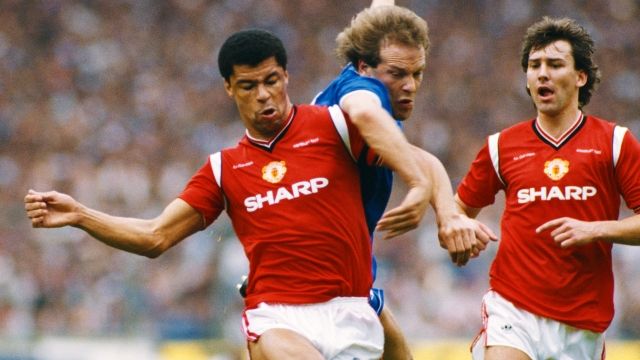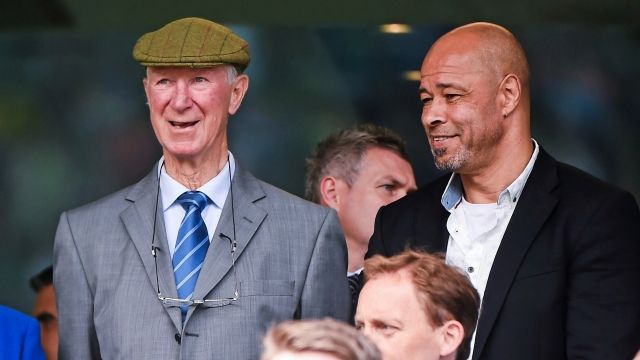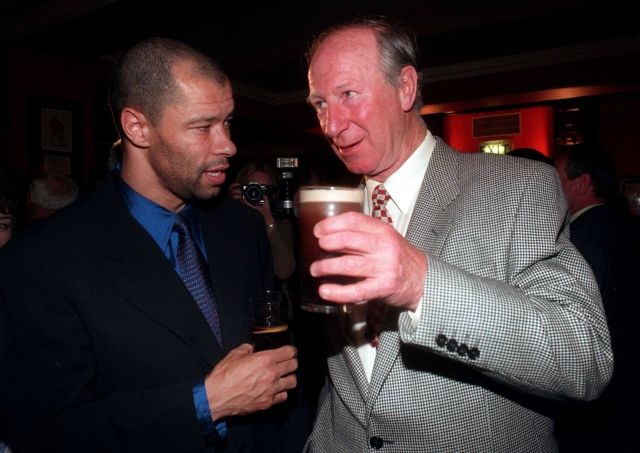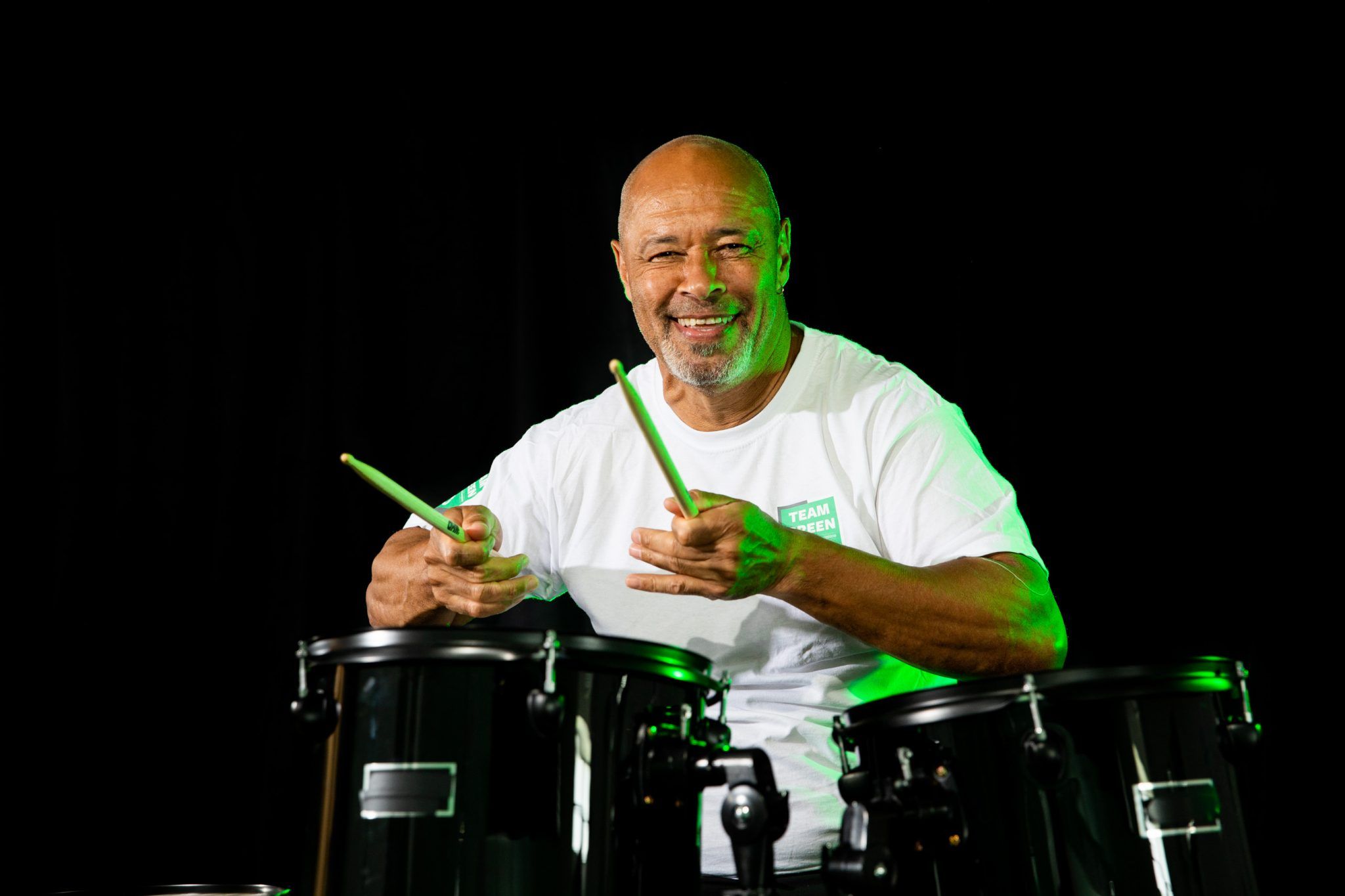

Share
19th December 2021
02:35pm GMT

After many of the events wrapped, Ferguson, his old boss, would stick his head in for a chat. "'How are you doing?' he asks. 'How are you getting on?' "After all we went through, I'd never say love but I definitely grew to like him more!"[caption id="attachment_244638" align="aligncenter" width="640"]
 Everton striker Andy Gray (c) is challenged by Paul McGrath (l) as Bryan Robson looks on during the 1985 FA Cup Final at Wembley Stadium. (Photo by David Cannon/Allsport/Getty Images)[/caption]
Everton striker Andy Gray (c) is challenged by Paul McGrath (l) as Bryan Robson looks on during the 1985 FA Cup Final at Wembley Stadium. (Photo by David Cannon/Allsport/Getty Images)[/caption]
McGrath and United went from a manager that was often in the same nightclubs as the players - "He'd come over to you and say, 'I hope you boys are leaving soon'." - to one that wanted to cut out the drinking culture at the club.Gordon Strachan was raving about Ferguson, who had managed him at Aberdeen, when he took over but getting hooked a few times at half-time fixed in McGrath's head that he wasn't long for Old Trafford. Knee injuries did not help, at all, and he joined Aston Villa in 1990. Atkinson and McGrath secured a satisfying League Cup final win over United in 1994. McGrath felt Atkinson got what he was all about, but the manager he was closest to, during and after his career, was Jack Charlton. [caption id="attachment_244640" align="aligncenter" width="640"]
 Jack Charlton and Paul McGrath pictured at the Aviva Stadium in 2015. (Photo by Paul Mohan/Sportfile)[/caption]
Jack Charlton and Paul McGrath pictured at the Aviva Stadium in 2015. (Photo by Paul Mohan/Sportfile)[/caption]
"Jack used to get names mixed up. He used to call me James, a lot of the time. He knew he had such a good connection with us, and we loved him for sometimes getting the wrong names. "So to hear that, with him saying my name, it wasn't something where I was jumping about the place. I just felt really sad. Maybe because he hadn't called me James. If he had've said 'James', it probably would have made me feel better. "I think, deep down, he did that [with the names] to keep us on our toes. But he was loved by every single one of us. We would have run through a brick wall for the man.""The documentary was made in such a lovely way," says McGrath. "With Andy involved, it could only be that way, to be honest. "I don't think Jack expected the Irish experience to be what it turned out to be. He thought he'd come over here and stamp his authority on everything, and it would all go swimmingly. But I don't think he reckoned on the crew he had taken on. "The Irish lads were just as strong-headed. We loved mingling with supporters. If we won or lost a game, we'd have fiddlers and guitars out. It wasn't that we ever celebrated a defeat. Like the World Cups, it was just having these nights together where we recognised what an incredible journey it had been. We were amazed when Jack said, 'Oh, that's not a bad idea. That's pretty good'. And he rowed behind it. "It was a wonderful 10 years. It was one of the best 10 years I've had on this planet." [caption id="attachment_244639" align="aligncenter" width="640"]
 McGrath and Jack Charlton at the Paul McGrath Testimonial Dinner at the Burlington Hotel, in 1998. (Photo by Ray McManus/Sportsfile)[/caption]
McGrath and Jack Charlton at the Paul McGrath Testimonial Dinner at the Burlington Hotel, in 1998. (Photo by Ray McManus/Sportsfile)[/caption]
"To be fair, that's what it's all about. It's a great sport to be involved in. Even us running around on the Dun Laoghaire pitches, growing up, we thought we were the best players in the world. That's what football is. It gives everyone a chance to dream. I used to think I was Peter Osgood, back in the day."

"We used to get free tickets for some games, at the orphanage I lived at in Dun Laoghaire," he recalls. "That was my first introduction to big sporting events, and I've always kept up that love and interest in rugby."McGrath says that and you remember that he spent much of his youth in an orphanage after his mum, Betty, returned home from England and gave him up for fostering. The man has an incredible story and is happy to give up an hour of his Thursday to talk about it. Just don't praise him too much, while you're at it. Paul McGrath is an ambassador for Repak’s Team Green. By joining Repak Team Green, not only will you be pledging to recycle more and better, you can also get handy tips on how to do so. It takes just two minutes to join Repak Team Green at repak.ie/teamgreen.
Explore more on these topics: